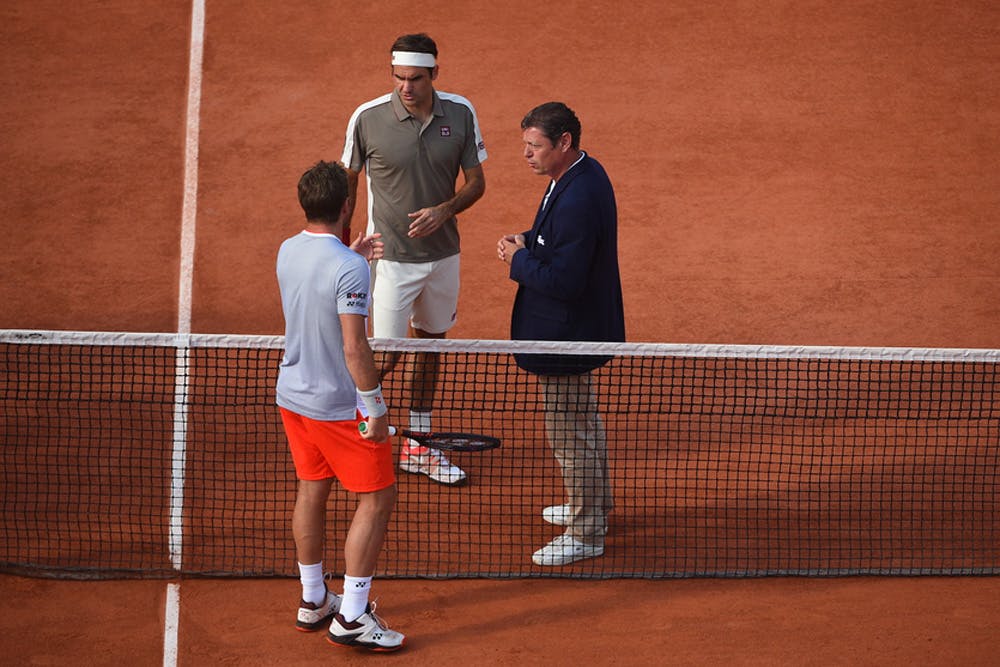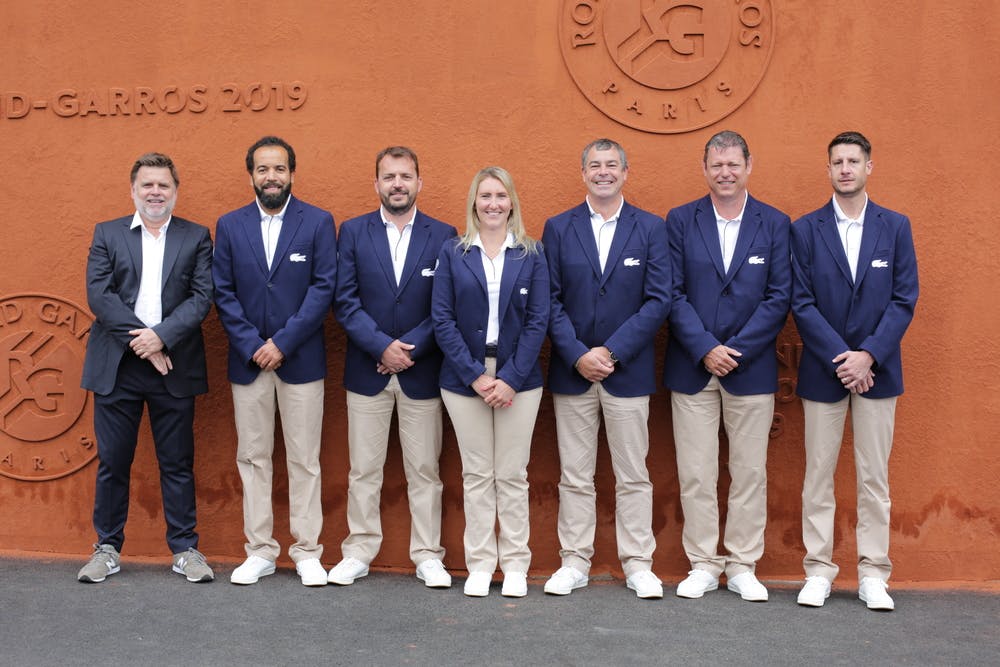Comically in retrospect, Bacchi once had to call the doctor on court for himself, after falling from the chair during a juniors match.
“I hit my knee on the post and saw blood coming through my trousers, so I had to have a medical timeout. I continued in my role and finished the match, and the players were great - they didn’t want me to come down from the chair to check line calls.”
When your presence anchors a match broadcast live to millions around the world, other more personal considerations also shape your day. “The only time you’d leave the chair is if you need to quickly head to the bathroom,” he says, in which case the supervisor stays with the players. “Everyone has to adjust their diet and how much they drink. You have to organise your life to minimise the chances you need to leave the court.”
Preparation
Like the players, umpires too can only control the controllables. There is no such thing as a typical day. Umpires arrive each day according to the time of the match they are scheduled to officiate.
“If you are on the first match, you arrive at least one hour before. If you are on second, you have to be onsite in time for the start of the first match, and so on.”
In contrast to the players, preparation for match officials involves anything but tennis. “We need to relax when we are not working to make sure we have 100 per cent concentration on court. We can’t be tennis, tennis, tennis. We go sight-seeing or get some air to take our mind off the pressure. I’m playing golf at a handicap of 24 now! We socialise together, organise dinners. It is always interesting as we are people from all over the world.”
In the zone
At the beginning of a tournament, officials can have as many as three matches per day; by the second week, they are allocated one.
When Bacchi heads to court, he checks everything is ready, the fridge is full, the tablet for scoring is working. “It is very simple to use,” he says. “You have buttons for code violation, time violation, etc. Everything that can happen during the match is on there. The five-minute warm-up is when you might feel the tension. Waiting for players in a big stadium is when you feel the pressure.”
If the match turns into a five-set thriller, how does Bacchi stay focused?
“You can have snacks, you can ask a ball kid for a banana or something to drink to help with energy levels. I find when I’m in the zone, I don’t feel time," he says.
"Sometimes I look at the match clock and see something like one hour 45 minutes, but it feels like just 10 minutes.”
And if the contest has been free of incident, there are no reports to be written other than to give a grading for the line judges’ input during the match.
“If I have given a code violation, then I have to make a report in the referee’s office," he adds.
All about passion
Bacchi, 52, says umpiring is not a career you can plan. “You have to have a passion for the sport” – and for a Frenchman that passion doesn’t burn brighter than at Roland-Garros even though the distinctive terre battue demands more decision-making of the umpire than any other slam.
“The clay makes it unique. There is no Hawk-Eye, but we have the marks [in the brick dust]. You have to go and interpret the mark left by the ball, to explain it to a player," says Bacchi.
"We have much more communication with players on clay; with Hawk-Eye, it’s black or white. I’m so proud to be part of this. When I was little, a young tennis player and watching Roland-Garros on TV, it was a dream. During my first Roland-Garros in 2004, I walked onto Philippe-Chatrier and felt like I entered the television.”
 ROLAND-GARROS
18 May - 7 June 2026
ROLAND-GARROS
18 May - 7 June 2026



